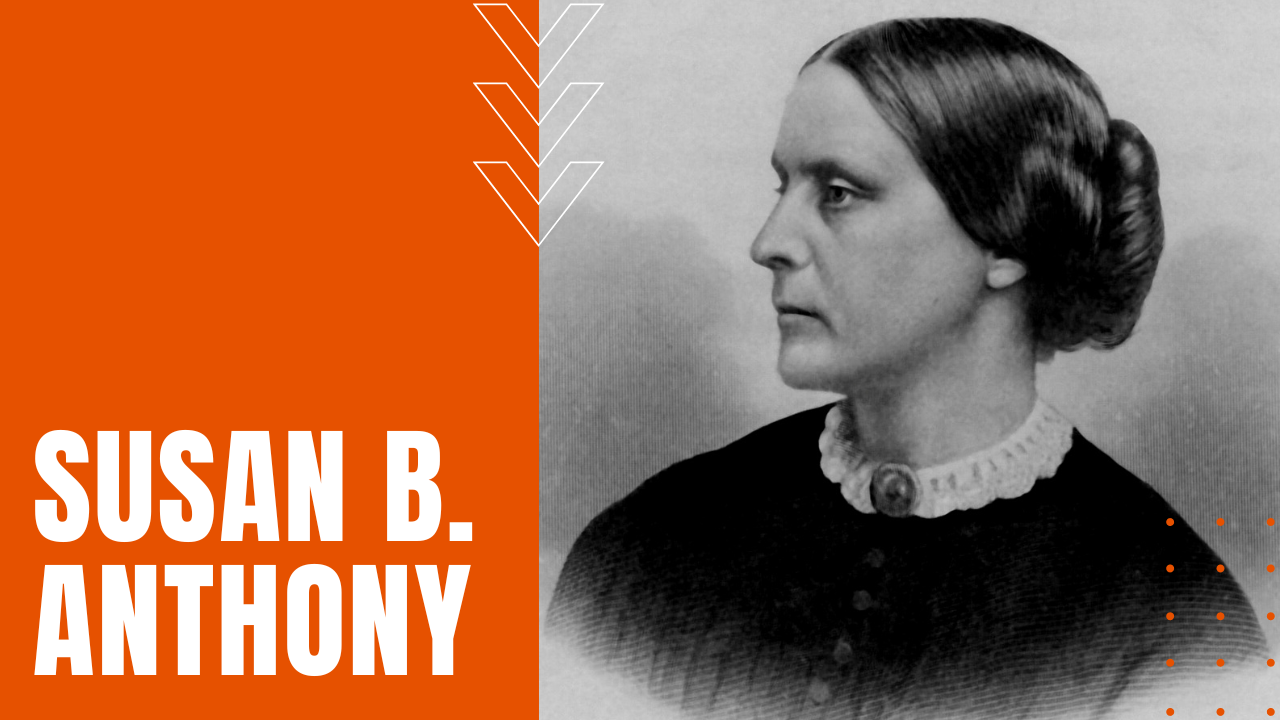Susan B. Anthony

Born into a politically-active family in 1820 Adams Massachusetts, Susan B. Anthony befriended anti-slavery activist Frederick Douglass when the family moved to Rochester New York in 1845, throwing her support behind both the abolitionist movement and the temperance movement, the later attempting to end the production and sale of alcohol in America.
Blocked From Speaking
When she was blocked from speaking at a temperance meeting because of her gender, however, she shifted her activism to the fight for women’s right, particularly the right for women to vote in local and national elections, writing that “There never will be complete equality until women themselves help to make laws and elect lawmakers,” adding that “No man is good enough to govern any woman without her
Forms Suffrage Movement
consent.” Founding the National Woman Suffrage Association alongside fellow suffragette Elizabeth Cady Stanton, in 1869, together the duo published a weekly pamphlet called The Revolution that called for women’s rights under the masthead of “Men, their rights, and nothing more; women, their rights, and nothing less.” As their movement gained traction with men and women alike, the duo teamed up with suffrage activist Matilda Joslyn Gage to publish a three-volume compilation of women’s rights activism entitled the History of Woman Suffrage,
Travels the Country
all the while traversing the country in a tireless effort to convince a complacent nation to support a woman’s right to vote. Frustrated by continued male dominance at the voting booth, Anthony voted illegally in the presidential election of 1872, which prompted her immediate arrest and subsequent conviction in 1873, where she was fined $100—a fine which she never paid. Lamenting late in life that she wished “to live another century and see the fruition of all the work for women,” fourteen years after her
19th Amendment
1906 death from pneumonia and heart failure at 86 years of age, Congress passed the 19th Amendment to the U.S. Constitution, which at last gave adult women the right to vote, made possible by the lobbying efforts of Carrie Chapman Catt, Anthony’s successor as president of the National American Women’s Suffrage Association, who carried on Anthony’s war cry of “organize, agitate and educate,” making the life and activism of Susan B. Anthony, an early beacon of light in a nation’s ongoing fight for equal rights.
